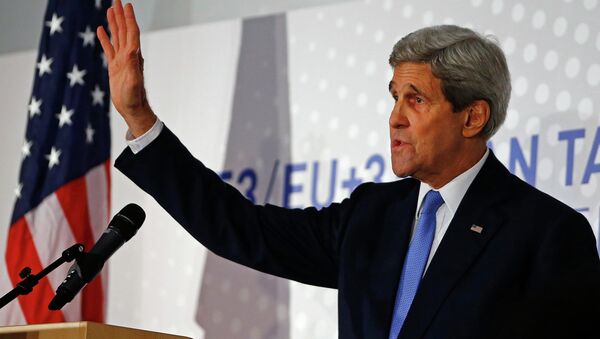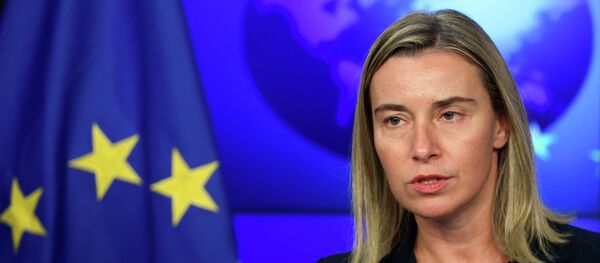The United States and the European Union have both imposed sanctions on Russia's financial, defense and energy sectors over Moscow's annexation of Crimea and its support for separatists in eastern Ukraine.
"There are continuing conversations with the EU about continuing to expand sanctions," said a senior US State Department official accompanying Kerry to a NATO foreign ministers meeting in Brussels on Tuesday.
"We will be having those conversations about where we go next, particularly in response to the continued supply of heavy weapons coming across the [Russian] border," said an official.
In 2013, Russia sold 162.7 billion cubic meters of gas to Europe and expects to sell at least 155 billion cubic meters this year, or about a third of Europe’s total demand.
As was noted by the BBC earlier, the EU does much more business with Russia than the US does. EU's trade with Russia was worth nearly 270bn euros in 2012, significantly greater than the value of US-Russia trade.
"Our role is also to explore ways for dialogue with Russia," EU's foreign policy chief Federica Mogherini told Reuters at NATO when asked about the possibility of new sanctions.
Washington was willing to stop the sanctions if Russia met its promises under the Minsk ceasefire accord, said a US official. He further stated that the combination of sanctions, low oil prices and general mismanagement are having "an intense effect" on Russia's economy. "You can see it in the billions that they have had to spend defending a Rouble that continues to fall. You see it in the high rates of inflation inside the country."






